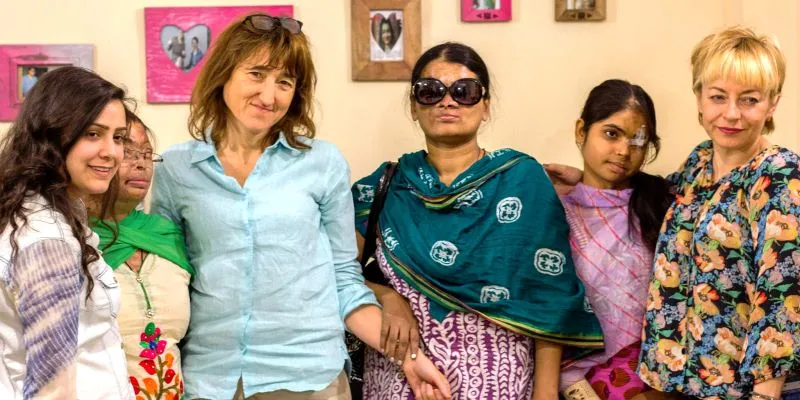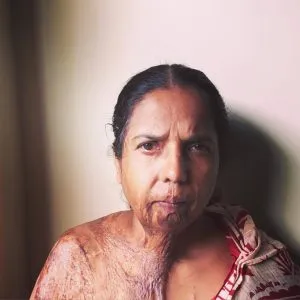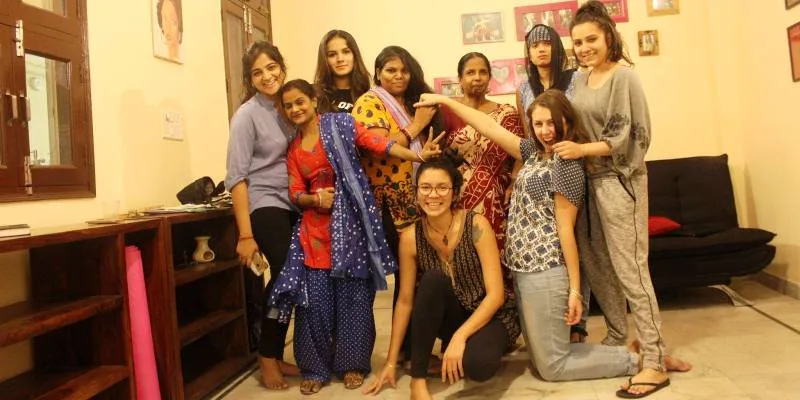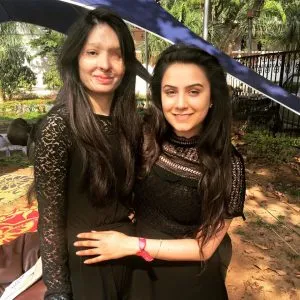This NGO from Delhi is building a rehabilitation centre for acid attack survivors
Make Love Not Scars, a Delhi-based NGO, is helping in the rehabilitation of acid attack survivors.
According to the acid Survivors Foundation India (ASFI), acid attacks have significantly increased over the past five years, with about 800 cases recorded across the country since 2011.
ASFI also revealed that there was a 300 percent increase in the attacks in the year 2014 alone, with 309 cases recorded across the country. ASFI concluded that the estimated acid attacks each year would range between 100 to 500 cases. With the alarming increase of acid attacks in the country, there is a dire need to address the issue, and above all provide compensation and rehabilitation for the victims of acid attacks.
Make Love Not Scars, an NGO, is on a mission to obtain justice and provide support for acid attack survivors through intervention and rehabilitation.

Make Love Not Scars, a documentary
While studying at the Leeds College of Art in England, Ria Sharma came across a photo of an acid attack survivor. She was disturbed by the image and spoke to her professor about it. He then asked told Ria to find a survivor and make a documentary in India.
Ria had her doubts but her professor’s faith in her made her take the plunge. When she returned to India, she met her first survivor. This meeting changed her life and she realised that the survivors needed more help on the ground than a mere documentary, which would not lead to immediate relief.
She stayed back in India and decided to set up a full-fledged NGO. The documentary was never made but Make Love Not Scars came into existence in 2015. What began with the simple concept of giving a voice to acid attack survivors is now aiming to identify attacks and any other of gender-based violence and provide the emergency medical and legal assistance required. Make Love Not Scars is operating to provide rehabilitation of survivors of acid attacks and other forms of gender-based violence (including burning and rape) through need-based training and assistance for stable employment.
The organisation is also working the government and non-governmental bodies, media, and other organisations for providing assistance in the form of campaigns and awareness programmes to change the mindset of the society and help bring a new normal in the society.
Ria, 24, says one of the biggest challenges the organisation had faced was ageism. Ria was just 21 when she established Make Love Not Scars and whenever she walked in for a meeting, people would second guess what she was saying. She was talked over, not taken seriously, and cast aside. However, she struggled to make her voice heard on behalf of all the survivors.
Rehabilitation of victims
Delhi-based Make Love Not Scars has helped and reached out to around 60 survivors across the country. “The acid attack survivors are often well connected with one another and we tend to ask them to keep an eye out for new cases. For the most part of it, the victims reach out to us. We have connections with other NGO's, hospitals, lawyers, and police stations and if any of them come across a new case, they recommend us to the survivor,” says Tania Singh, one of the core team members of the organisation.

“An acid attack is a horrific, violent, and haunting act by nature and can shatter a person for life. They face unimaginable physical pain, are ostracised by society, are stared at, jeered and laughed at or victim-blamed, lose their face, eyes and hearing at times and often lose all support from friends and family. To overcome such hurdles, it takes years of rehabilitation,” says Tania.
The organisation provides survivors with art therapy such as dance and yoga to ease emotional distress, provide a support system of survivors where they can reach out to each other and guide each other on the recovery and legal processes involved in the aftermath of the attack. The team also provides them with skill training such as English and basic math to help them get jobs and set up collaborations with entrepreneurs in order to train the girls to work independently and gain some financial independence.
“We also help connect them with the right legal aid and provide them with all medical help ranging from surgeries to post-operative care,” says Tania.
The organisation has run various campaigns for financial assistance, medical assistance, and procuring employment for the survivors.

Current campaign
Make Love Not Scars is running a crowdfunding campaign for the rehabilitation centre for the survivors.
The money raised will be used for any necessary medical treatments, legal fees, counselling support, and educational needs of the survivors. The centre, which currently has 15–20 survivors, will be welcoming all acid attack survivors across the country.

“We are currently working on helping the survivors to fulfil their dreams. We've launched a job portal for acid-attack survivors under our latest campaign #SkillsNotScars. People can browse through our website, go through the survivor's resumes and contact us to set up interviews. We will be focusing on the Skills Not Scars campaign for the next few months until all the interested survivors are hired,” says Tania.
“Acid is increasingly becoming a weapon of choice. If you see a person or animal injured by acid – do not stay quiet. Call us, reach out to us. If it happens in front of you, put the person under a stream of room temperature, cool (but not cold) water for hours until help arrives. The longer the person is under water, the lesser the damage will be. If you see an animal attacked by acid, please know that it is an extremely painful act and that the animal is suffering. Get water for the animal as well and call a local animal shelter immediately!” says Tania.







